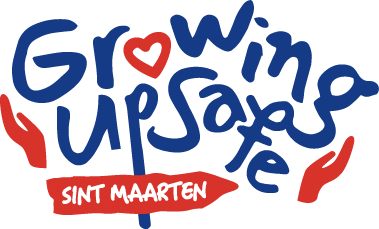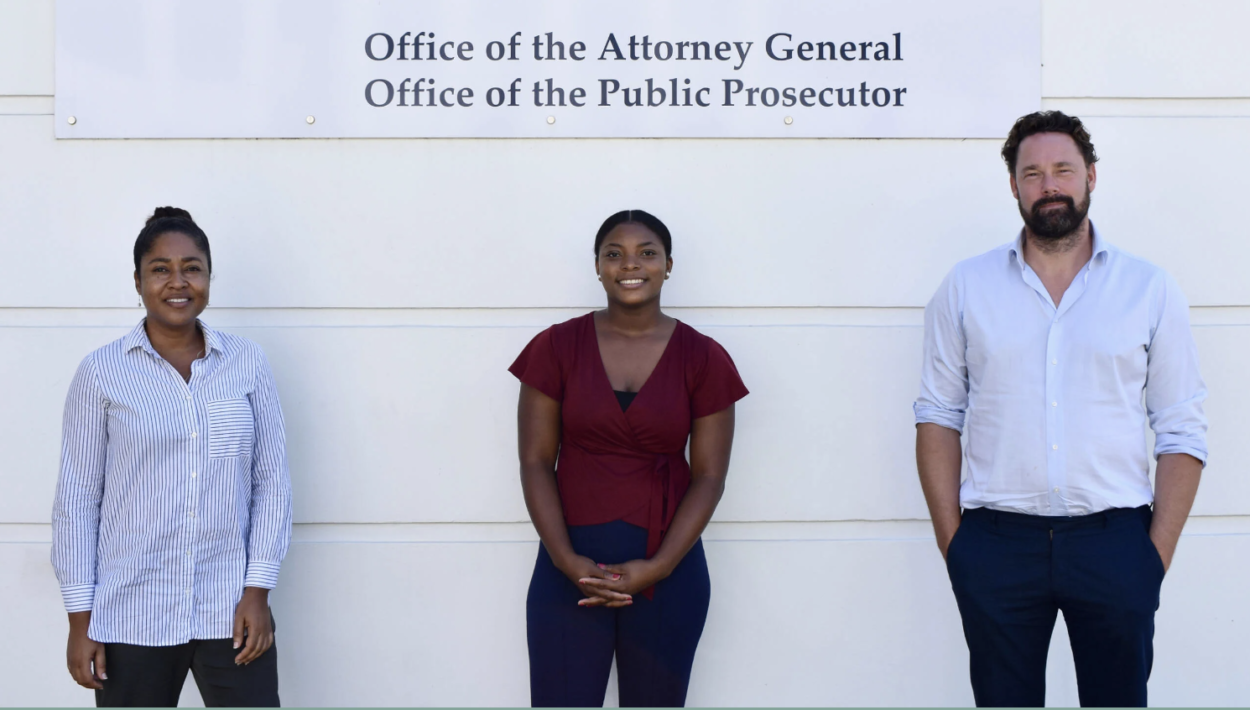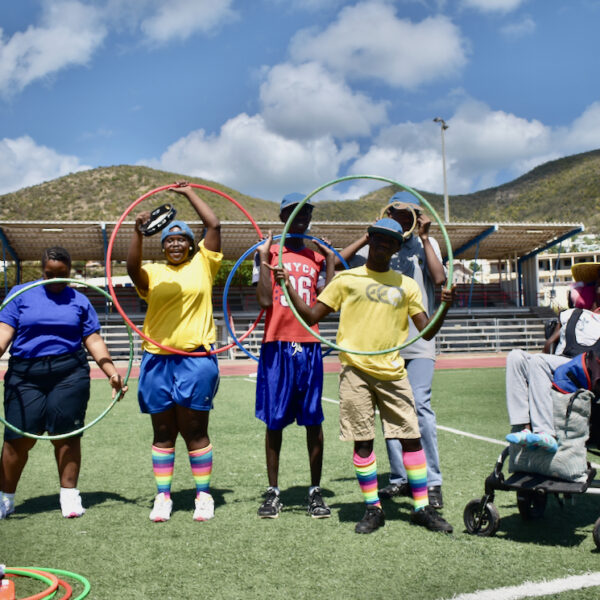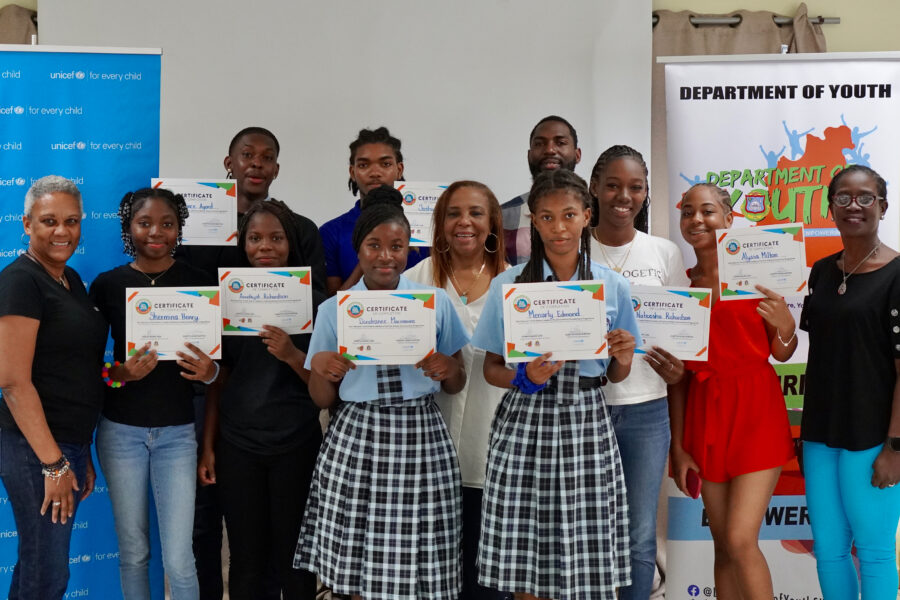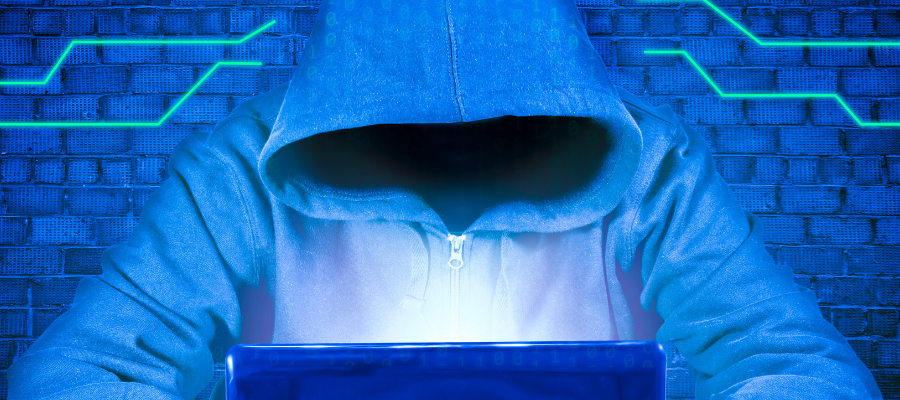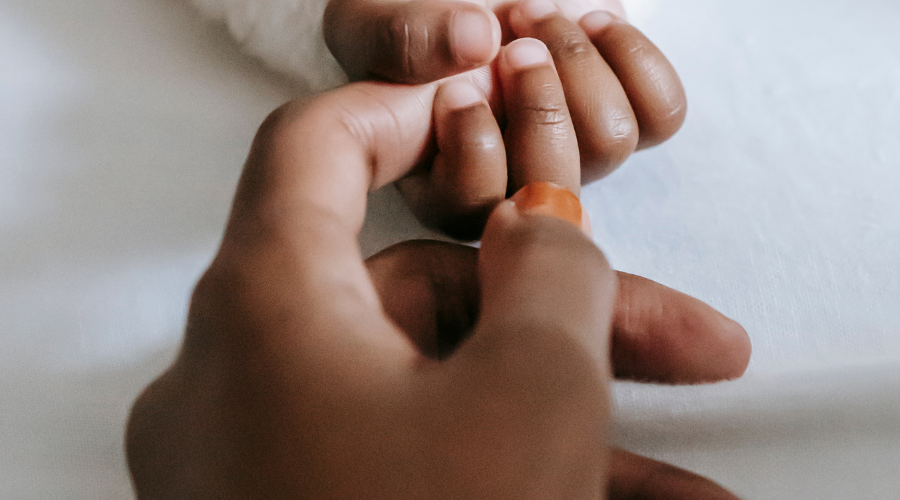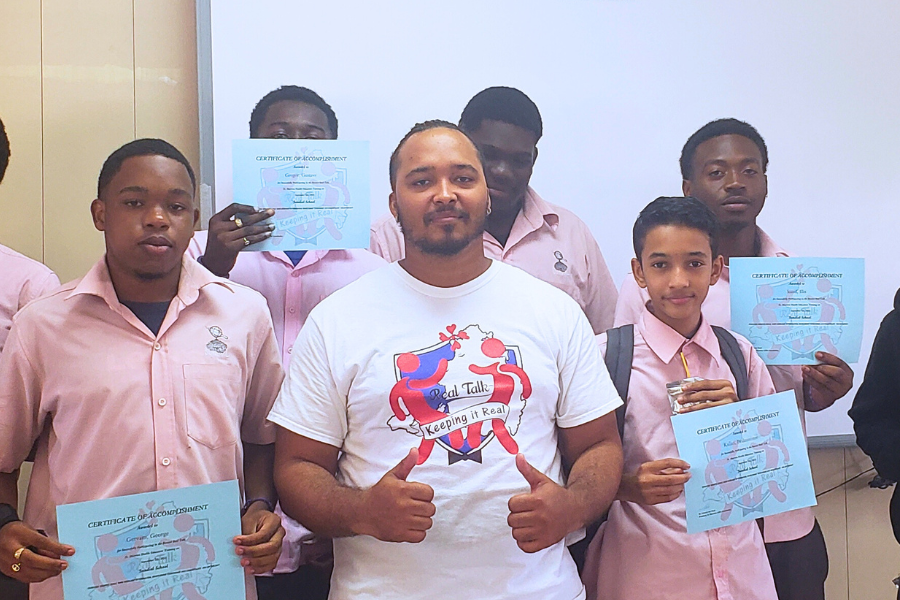The Public Prosecutor’s Office Sint Maarten is working on tackling child abuse in various ways. Still, there’s a lot to be done, says Public Prosecutor Geert Steeghs. Not only as far as criminal law is concerned, but also in the area of prevention. ‘Social change needs to happen.’
“We have to offer support and opportunities for the youth to help them become contributing members of society. On Sint Maarten, poverty-related issues and a lack of preventative education, programs, and facilities contribute heavily to youth delinquency and other crimes,” explains Geert Steeghs, the Public Prosecutor for the Youth and Morals Division at the Public Prosecutor’s Office.
Seated next to him are Brenda Koek, Policy Advisor and Marushka Kortram, Legal Advisor, who also work on cases with youth victims or defendants. Brenda works on cases involving domestic violence too. “We contribute to protecting children’s rights by prosecuting cases where the children’s rights are violated in a criminal sense. We also try to help protect the rights of suspects or offenders who are minors.”
What is the difference between prosecuting an adult and a minor in a criminal case?
“Minors have more substantial rights than adult defendants. For example, a suspect who is a minor must have legal representation present during questioning. Pre-trial detention is an exception to the rule. This applies even more to minors. Pre-trial detention is only applied as a last resort. Another difference is that trials involving minors under sixteen are dealt with behind closed doors (no public or media can be present). Also, sentences are lower. Juvenile detention is maximized at 1, 2, or 4 years depending on the crime. Community service or other conditions instead of detention time are considered more carefully.
At the moment, we have the Miss Lalie Center, which is a youth detention centre for male offenders under 21 years old. This has better rehabilitation options than the prison, although many improvements could be made. At the moment, we do not have a facility like this to hold female youth offenders. This poses a problem if a female who is a minor is involved in a serious crime. There is also a crucial gap in resources to detain and rehabilitate minors involved in less serious crimes.”
“There is a crucial gap in resources to detain and rehabilitate minors involved in less serious crimes. Programs and facilities to support at-risk youth are severely lacking”
What are some crimes that you notice are prevalent amongst youth?
“There is an increase in the frequency and scale of the crimes that are committed by minors. For example, over the past years, we have seen a spike in youth violence, such as fights in and around schools. These can get particularly violent, and on top of that, others cheer it on and share it on social media such as Facebook. This has been a concern in the community for a while. We feel that many of these crimes can be prevented with the right resources.
Programs and facilities to support at-risk youth are severely lacking. We notice that although there are many reports and research available, the actual implementation of prevention programs is not followed through.
We sometimes see minors or adolescents commit serious violent crimes such as (attempted) manslaughter or armed robberies, who have been known by the court of guardianship, schools, police or other community organizations for years. In a sense they were accidents waiting to happen. Earlier and more structural interventions could have prevented at least some of these incidents.”
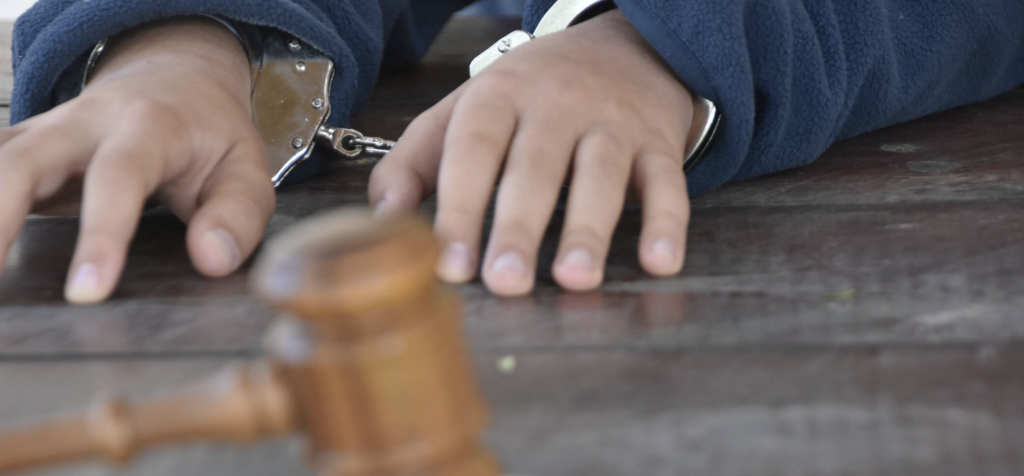
Physical punishment is still commonly used as a form of discipline. Is this against the law?
“Corporal punishment falls under the maltreatment law of Sint Maarten. If someone hits you and you experience any level of pain, this can be seen as maltreatment. This means that corporal punishment is also prohibited in all settings, including the home. So yes, we have a powerful law against corporal punishment. Corporal punishment, which is physical abuse, is a huge issue, and it is entrenched in some parts of society and through intergenerational transfer. In practice, on Sint Maarten, only extreme cases of physical abuse are prosecuted.”
Can you elaborate further on why abuse or domestic violence cases are so complicated to prosecute?
“Unfortunately, the abuse is often not reported. At times reported crimes such as abuse could also be viewed by the law as a “he said – she said” situation without enough supporting evidence. In some cases, people who filed a report retract their statement later and become unwilling to continue with the case. This happens because the people involved are also dependent on their abuser. The victim might be scared as well, as there are too few options currently available to protect the victim. Similarly, witnesses might be unwilling to provide statements.
Another issue we face is that people can easily cross the border to the French Side or to another country. We have to first request a transfer of the case to French Authorities. Sint Maarten often does not have the appropriate extradition treaties with countries, notably some surrounding islands such as St. Kitts and Nevis, Jamaica, Dominican Republic, etc., to extradite a person legally. At times, the victim only feels safe enough to file an official report once the abuser has moved off the island. We have cases of girls of 6, 8 and 9 years old that were abused by extended family members who have fled the island. You are not going to find them.”
“Education and prevention are vital in preventing crimes and encouraging persons to report more quickly, accurately, and frequently”
What can be done to improve this?
“Again, education and prevention are vital in preventing crimes and encouraging people to report more quickly, accurately, and frequently. The low socioeconomic status of people, which contribute to dependency on a victim’s abuser, are much more challenging to solve. Until those are resolved, our country should provide more access to facilities such as Safe Haven. Extradition treaties with more countries, especially surrounding islands, should also be looked at.
A better ‘flagging system’ to stop people from leaving the island could also be developed; however, there are other means to quickly ‘flee’ as well, such as by boat. It is important to note that we can still go ahead with the trial proceedings even if the defendant does not show up for trial or is in another country. If found guilty, the offender’s sentence will be enforced once he or she returns and is arrested on Sint Maarten.”
You mention victim support, what does this entail?
“Historically, the Prosecutor and Police Department focuses on investigating the crime and punishing the offender. Victims got far less attention. Informing the victim on the status of the investigation and the rights during the trial can avoid disappointment, frustration or unmet expectations and help in dealing with grief and anger. To improve on this, we set up a victim support division last year. The goal is to keep victims better and more proactively updated on their case, manage expectations, and give them more opportunities to express their opinions related to their case. We also prepared a ‘victim support’ handbook for everyone in our office to follow. Victim’s rights and enhancing the role of the victim still needs to be addressed further however, in all organizations involved.”
“Our justice system, including our office, should more proactively communicate with victims allowing them to feel better supported and prepared”
Why aren’t all (suspected) abuse offenders held in pre-trial detention?
Under European law, every suspect is allowed to wait for his verdict in freedom. By law, we cannot place a person in pre-trial detention without sufficient proof that he or she is a danger to the community. In addition, pre-trial detention is also hard to enforce due to the lack of space in prison. When, for example, a male is accused of inappropriately touching a minor, and he denies all charges and has no criminal history on record, we do not have enough law-based reasons to hold him in pre-trial detention before the case is presented in court. When a male is accused of inappropriately touching a young boy and has a history of sexual assault and has been charged, we would place the defendant in pre-trial detention.”
What are some improvements in Sint Maarten’s laws that you would like to see?
“Under Sint Maarten law, the victim and defendant have fewer rights than Dutch law. For example, the victim’s rights to speak in court or the right for a defendant to have a lawyer present, are more limited. (However, The Supreme Court, which operates under Dutch Law, is less restricted. The judge does often consider this as well in court proceedings.)
To improve particular victim and defendant rights under Sint Maarten Law, we have a new (draft) procedural criminal law policy that needs to be reviewed and hopefully adopted by Parliament. The law improves the criminal process in many ways including more rights to victims and access to a lawyer for minors. However, the draft law has not yet been approved by the Parliament.
We should consider looking into best practices when it comes to protecting children and families from crimes such as abuse. For example, in The Netherlands, mayors may impose a ten -day restraining order for (imminent) domestic violence or (serious suspicion of) child abuse. Depending on the situation, the mayor can extend the temporary restraining order up to a maximum of four weeks. This allows the victim(s) more room and safety to make needed arrangements.”
“Children on our island face broken homes, lack of support, violence in their community, and lack of social services such as appropriate schooling, foster care options, and psychological help. This is what is contributing heavily to youth crime”
How can children’s rights be strengthened within the justice system?
“So much can be done, but let’s start with:
– That our new procedural criminal law policy is reviewed and approved by Parliament.
– That the Miss Lalie Center (or other detention facilities) does not just function as a detention centre but provides more access to rehabilitation programs and facilities for youth offenders, male and female alike.
– That collaborations are actively established to start implementing preventative and educational measures to prevent youth crimes.
– That our justice system, including our office, more proactively communicates with victims allowing them to feel better supported and prepared. Our victim support division that was established last year is a good first step.
Currently, our country only focuses on the rigid prison system, and we believe this will solve our crime issues. However, once a person ends up in prison, you have ‘lost’ already – the crime has been committed, and chances of successful rehabilitation into society are slim. There are children on our island that come from broken homes, experience a lack of support and violence in their community, a lack of social services such as appropriate schooling, foster care options, and psychological help. This may contribute to the cause of youth crime.
Social change needs to happen, and yes, punishment is part of it, but the prison does not have enough capacity, nor is it the most effective way to eradicate abuse and other crimes. We need to become a society that cares for its people and our vulnerable groups, such as at-risk youth. Only then will you see a significant change in numbers of children who become victims or offenders.”
The Public Prosecutor’s Office
The Public Prosecutor’s Office’s primary function is to defend the public against people who commit crimes against citizens. They represent the victims or the public in court. The core tasks of the Public Prosecution Service can be divided into three categories: 1. Lead the investigation of criminal acts, 2. Prosecute criminal acts, 3. Oversee implementation and execution of criminal sentences. Since last year, the Public Prosecutor’s Office also provides victim support.
The Public Prosecutor’s Office has a direct responsibility to the community to prosecute crimes. However, this does not happen overnight. First, together with the Police Department, they decide whether there is sufficient evidence to charge the person with a crime, and this takes time to investigate and collect. The Public Prosecutor’s Office can also choose to prosecute even if the victim decides not to press charges.
Once the casefile is ready, a court date is set. Criminal judges have to fly in from Curaçao, and there is limited space and time for court cases. On average, this process takes a minimum of 4 months. “We would like to see more cases prosecuted. This number is low due to lack of capacity in the police force, forthcoming witnesses, and appropriate rehabilitation facilities or space within the prison,” says Geert Steeghs, the Public Prosecutor for the Youth and Morals Division at the Public Prosecutor’s Office.
How can the public report a crime or provide information on a suspected crime?
The Police Department can be contacted via phone at 1-721-542-2222 ext. 203/204/205, the anonymous tip line # 9300 or people with information can also send a private message via our Facebook Page – Police Force of Sint Maarten – Korps Politie Sint Maarten or website https://www.policesxm.sx. To report suspected child-abuse, people can also contact the Sint Maarten Court of Guardianship: +1721 542-4110.
